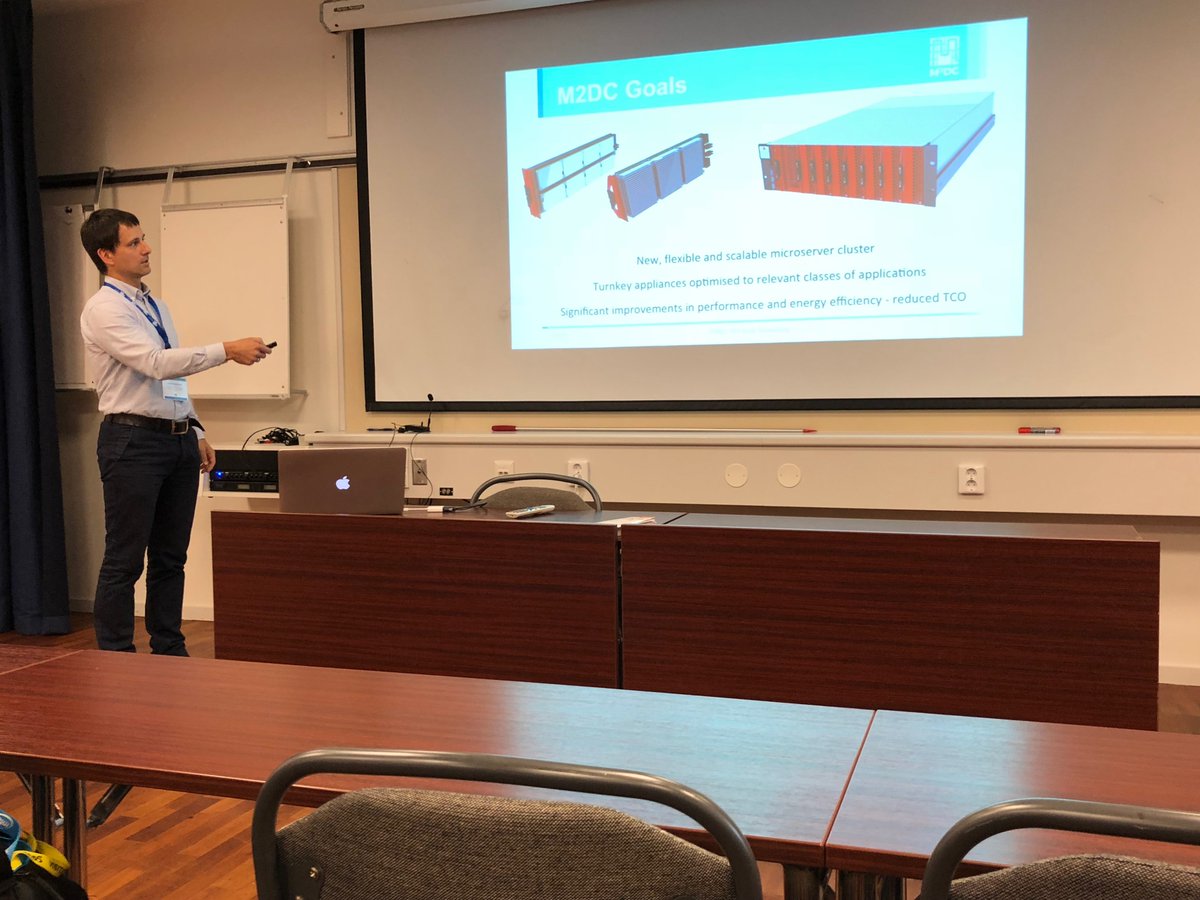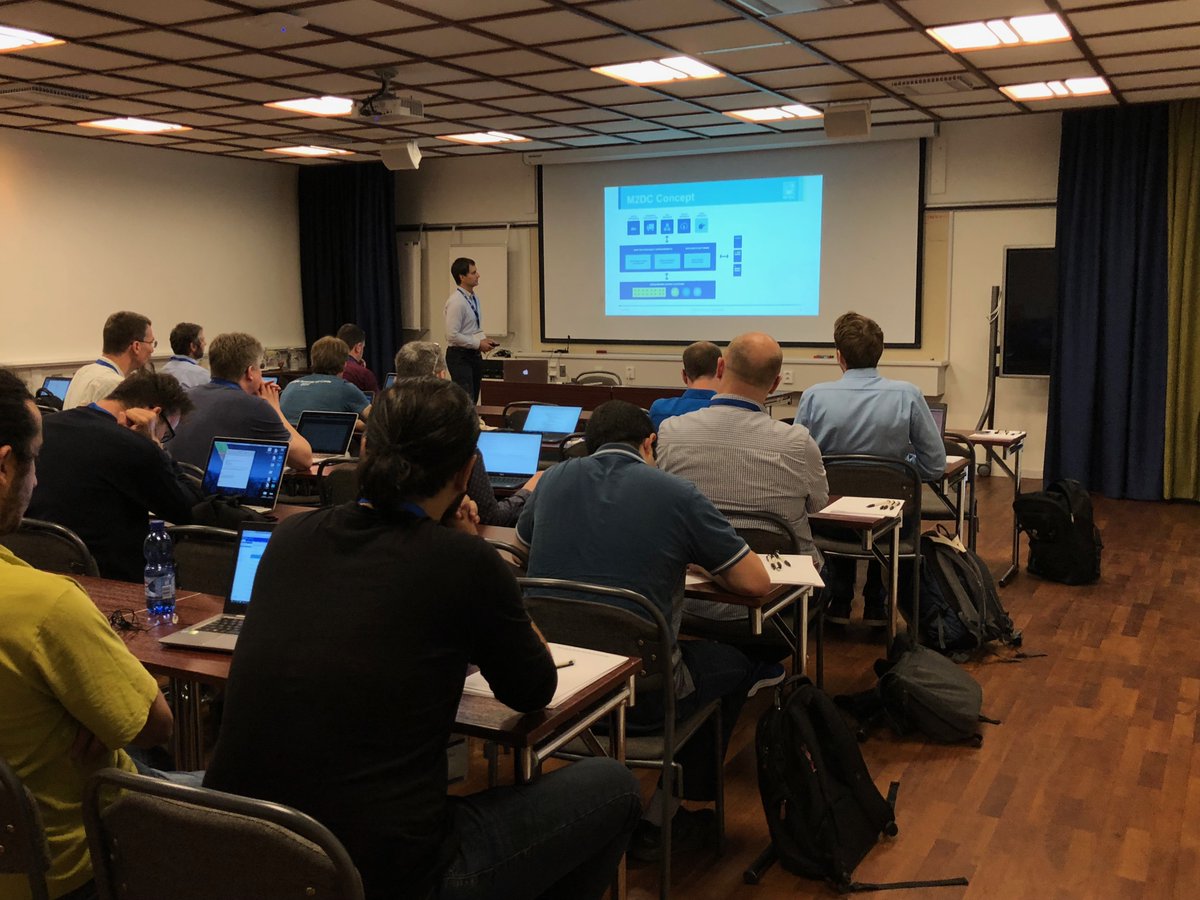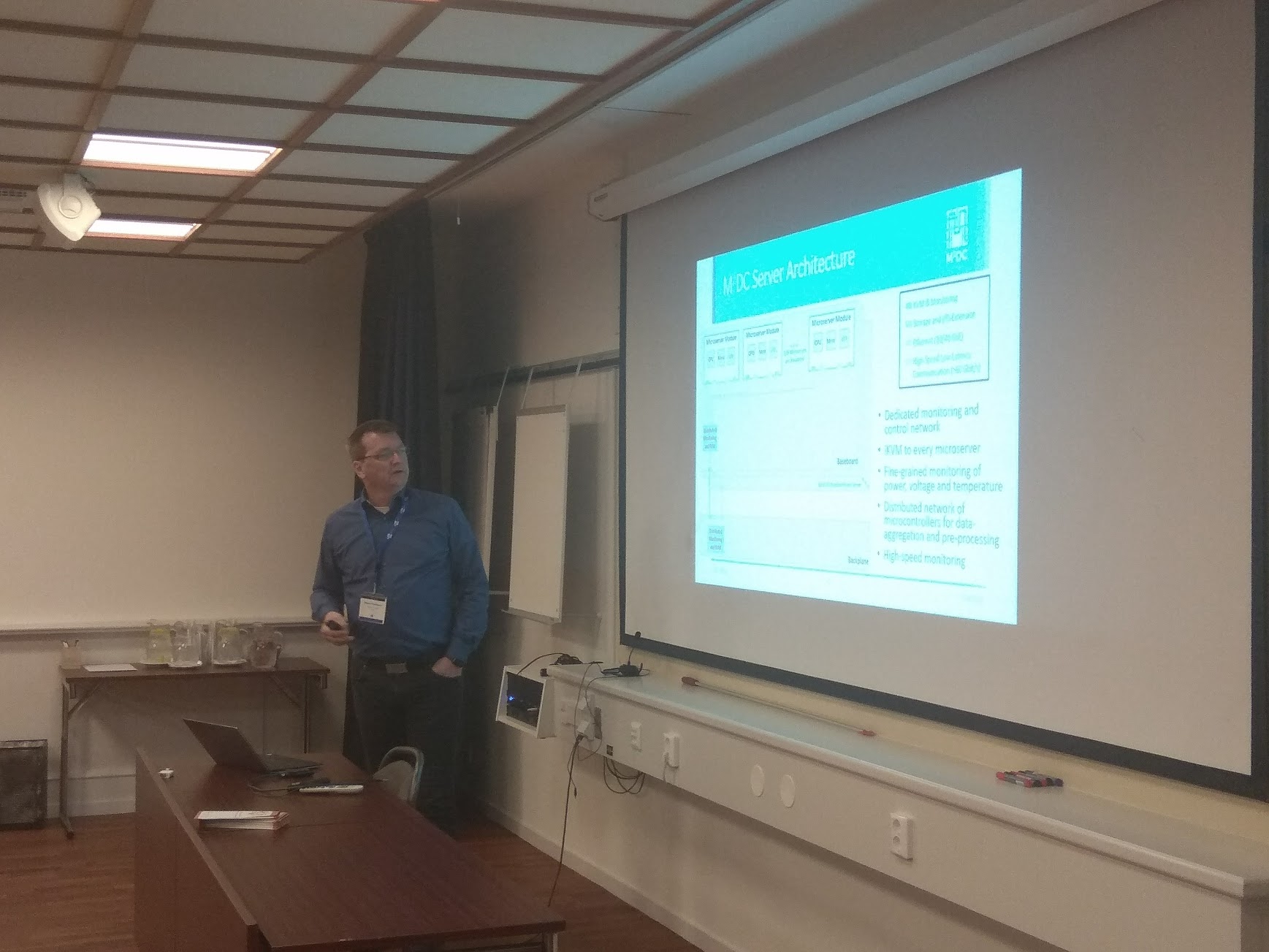Energy-efficient heterogeneous computing systems and infrastructures
June 15, 2018, 12:01 p.m.
The M2DC team was present at the latest HiPEAC Computing Systems Week with a Workshop entitled “Energy-efficient heterogeneous computing systems and infrastructures”, co-organized with the EU H2020 project OPERA (http://www.operaproject.eu/). European researchers discussed how to tackle the next big challenges for resource-efficient data centers and edge computing. Sharing achieved results and new ideas between the EU projects is vital for being able to cope with the steadily increasing computational demands of new services and applications. Novel, highly energy efficient solutions are required – OPERA and M2DC target this area with heterogeneous platforms, combining CPUs, GPUs and FPGAs.


This thematic session was part of the program of the most recent HiPEAC Computing Systems Week, which took place in Gothenburg, Sweden from May 22 to 24. The program also included presentations from the two EU projects accompanied with inspiring invited talks. In the first presentation, Alexey Cheptsov from the High-Performance Computing Center in Stuttgart, Germany, focused on “Efficient Monitoring and Management of Resources in Embedded Cloud Infrastructures”. After discussing the major challenges towards Exascale computing, he showed how the H2020 project PHANTOM (Cross-Layer and Multi-Objective Programming Approach for Next Generation Heterogeneous Parallel Computing Systems) tackles these challenges through a cross-layer design comprising reconfigurable multi-core and heterogeneous hardware platforms managed by a hardware-agnostic software platform. Olivier Terzo and Alberto Scionti from the Istituto Superiore Mario Boella, Italy, gave an overview about the OPERA project (lOw Power heterogeneous architecture for nExt generation of smaRt infrastructure and platforms in industrial and societal Applications) in their talk “From Chip to Data Center: the OPERA Approach to Energy Efficiency”. With the design of next generation low power and ultra-low power systems, OPERA wants to improve energy efficiency in computing by means of heterogeneous architectures. On application level, they showed the efficiency of their approach for machine learning based on convolutional neural networks.

In the next talk, Ariel Oleksiak from Poznań Supercomputing and Networking Center, Poland, and Mario Porrmann from Bielefeld University, Germany, presented the M2DC (Modular Microserver DataCentre) project, which targets the development and demonstration of a highly-efficient heterogeneous server platform accompanied by intelligent management techniques integrated with OpenStack middleware. They focused on the scalable hardware platform integrating novel custom microservers based on 32-core ARM v8 server processors and Intel Stratix 10 FPGAs together with a flexible high-speed low-latency communication infrastructure. Additionally, the concept of system efficiency enhancements (SEEs) was discussed, focusing especially on the target appliances of M2DCs. The final presentation, titled “Benchmarking OpenCL, OpenACC, OpenMP, and CUDA: Programming Productivity, Performance, and Energy Consumption”, was given by Sabri Pllana from Linnaeus University, Sweden. He focused on the evaluation of the various programming frameworks that enable program execution on heterogeneous computing platforms.
After the stimulating talks and fruitful discussions, researchers from OPERA and M2DC came together in a private session, discussing the possibilities for further joint activities between the projects. Sharing additional details about the middleware concepts of the two projects, the heterogeneous hardware as well as the utilization of hardware accelerators for increased resource efficiency led to an in-depth understanding of the different approaches. Future meetings will follow, targeting to intensify the cooperation between the projects.